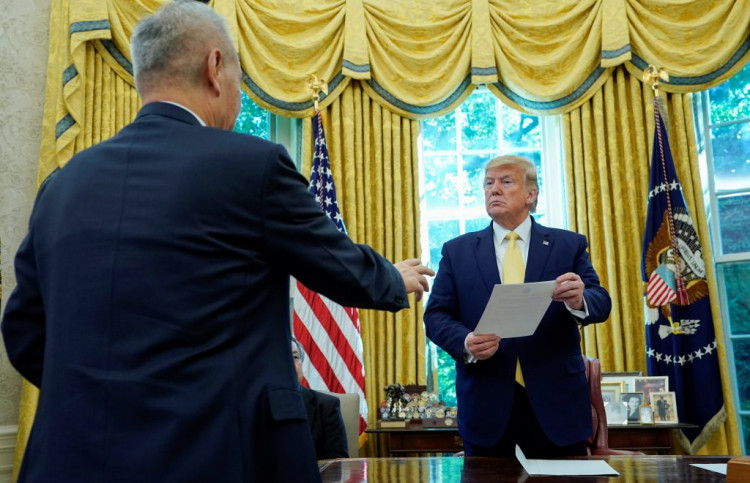China on Thursday said it will continue striving to attain the difficult phase one interim trade deal to mitigate Trump's trade war despite some analysis contending phase one has all but failed.
The Ministry of Commerce said China will try to keep communication channels open as it attempts to allay fears phase one might already have failed and the broader trade talks are also in danger of failing, as well. It announced China's willingness to work with the Trump administration to resolve each other's core concerns on the basis of equality and mutual respect.
China will try hard to reach a "phase one" deal, according to Gao Feng, the ministry spokesman. "This is in line with the interests of both China and the United States, and of the world."
He also said China and the Trump administration will continue to communicate. Gao also warned "outside rumors are not accurate" in reference to speculation about China agreeing to buy huge quantities of U.S. soybeans.
On Wednesday, Chinese Vice Premier Liu He, who is also China's chief negotiator, said he remains "cautiously optimistic" about reaching a phase one deal, according to a report by Bloomberg News. Liu, however, also said he was "confused" about Trump's demands, but was confident phase one might be completed despite the hurdles it faces.
As part of its pitch phase, one remains alive, China has invited top U.S. trade negotiators for a new round of face-to-face talks in Beijing. Liu is said to have invited U.S. Trade Representative Robert Lighthizer and Treasury Secretary Steven Mnuchin to hold a meeting in Beijing.
China hopes the new round of talks can take place before next Thursday's Thanksgiving holiday in the United States. White House officials have indicated U.S. negotiators will be willing to meet in person but hesitate to commit to a date. American negotiators are also reluctant to travel for the talks unless China agrees to make commitments on intellectual property protection, forced technology transfers and agricultural purchases. These three are among the Trump administration's core demands.
Chinese state-controlled media is still reporting that president Xi Jinping and Trump might sign the phase one deal in December. Washington insider said the next date to watch was December 15 when U.S. tariffs on $156 billion in Chinese goods take effect. No Xi-Trump meeting will take place if these new tariffs take effect, said Beijing sources cited by U.S. media.
It is becoming likelier the completion of phase one might now take place within the first three months of 2020. White House sources said the Trump administration keeps resisting China's demand for more extensive tariff rollbacks as a pre-condition for a phase one deal.





